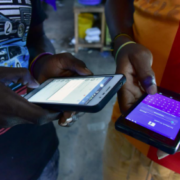Zimbabwe’s medical practitioners have been urged to manipulate the advantages that ICTs and telemedicine bring to realise more treatments done efficiently.
This word of advice came from Harare Central Hospital clinical director George Vera who said ICTs should be incorporated in the practice.
“We need to embrace to embrace ICT to help us in delivering health. And there are so many gaps that we can use very profitably in health. You know vanhu use whatsapp when communicating with their relatives. In medicine, we can actually use it. We have started using it to transmit information between each other,” he said in an interview.
“ For example, if a patient comes in with a fracture back then, the doctor would just explain what the fracture looks like.
Vera also noted that ICTs can be used to expedite the treatment of diabetes.
“So we can use ICT very very useful for medicine. We just need to develop. And here in diabetes, they can use it to show complications to others, for the results and its very cheap now adays to use that information technology tools. You don’t need to use a huge thing like a PC, or Desktop because you can use your smartphone and everything can be done,” he said.
With Zimbabwe sluggish in practicing telemedicine, Vera said if the medical professionals made us of ICTs fully the country’s health sector would be transformed for the better.
“So ICT is here, let’s use it.I think right now we are using 1 percent of what we can do with it. If we started using the other 99 percent, medicine would be changed,” he noted.
He added ICTs are also instrumental in educating people about diabetes.
“So one of the biggest arms of controlling diabetes is education and ICT comes in. we can educate people very easily. We can tell people by just sending a WhatsApp message saying don’t do this, don’t eat this. We can have a special bulletin for diabetics which will go out every Saturday,” he said.
Postal and Telecommunication Regulatory Authority of Zimbabwe’s director general Dr Gift Kallisto Machengete encouraged the global telecommunications industry to come up with a clear roadmap of achieving universal health coverage and to take stock of the fact that some countries do not have the infrastructure to achieve the objective. “There is need for a roadmap. What we know at the moment is that by 2030 we are attempting to achieve universal health coverage. What is not clear is how we are going to get there. We have to be clear who is doing what for us to get to 2030 with universal health coverage,” he said.
“There are already some countries which are more or less there because of their economic development, even when we look at Internet coverage its 100 percent. When you look at infrastructure its nearly 100 percent. There are some countries where infrastructure is a big impediment to any access.” He said in such situations it would be important for the United Nations to look at how they can babysit those lagging behind. It doesn’t help if only a few countries reach universal health coverage for all and yet there are some who cannot even afford three tablets to prevent malaria. In other countries, malaria is nothing to talk about anymore, but in some it is a big killer.”











Comments